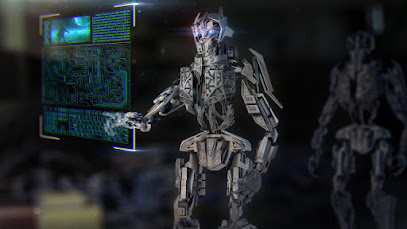Why is everyone talking about Robotic Process Automation?
RPA is a part of technology whose aim is to provide automated business processes with the help of logic and structured inputs. It does not involve physical robots as it is based on the concept of software robots which acts as human while interacting with applications.
Businesses create their own software robots for automation. These software bots are used to perform routine works like application login and log out, copying and pasting of data and filling out forms. Several companies are also offering RPA services to their clients and for that, they are creating technology-based micro-niche blogs for special emphasis.
Advantages of RPA
Absence of technical hurdles: Programming skills are not necessary to operate software bots. It is a code-free technology which can be used by non-technical staff also.
Accuracy: The software robots are designed in such a way that they make fewer mistakes and typos which human beings generally make while performing the tasks.
Cost-Effective: RPA is very cost-effective and user friendly. As robots are assigned repetitive tasks, both time and resources are saved.
No work interruptions: Software robots can work 24 hours. They do not get tired. This increases the scalability and productivity of an organization.
Employee Morale: Employees get more time to showcase their talents instead of indulging in mundane tasks. They will have more time to focus on what is more important.
Customer Experience: Nowadays Virtual Assistants are used by almost every MNC to enhance the customer experience. Virtual Assistant is a part of RPA.
Myths regarding RPA
Robots will take human jobs: This is one of the biggest myths that have surfaced ever since automation is introduced. These robots are unfit for innovative thinking, therefore human beings can't be replaced by these robots.
RPA never fails: If the bad task is given, then that task also gets automated without any common sense. Sometimes tools also cannot identify mistakes made by RPA.
RPA doe not require monitoring: For tracking the performance of bots, human intervention is required.
RPA is the end of BPO(Business Process Outsourcing): This is so not the case as the BPO providers use this technology to provide better customer services. BPOs are here to stay even is more advancements in RPA will be introduced in the future.
The future updates of RPA will bring additional value to this innovative technology. Integration of RPA with Machine Learning and Cognitive technologies helps the bots to easily interpret the environment that they work across and handling the errors more carefully.
If automation part for repetitive tasks is overlooked, RPA combining with traditional content services and business processes can help an organization reach greater heights. Any business who can make the proper use of automation will get the benefit from this. As a result, RPA fills the gap as a technology which is very cost-effective and helps in increasing productivity.



Great
ReplyDelete